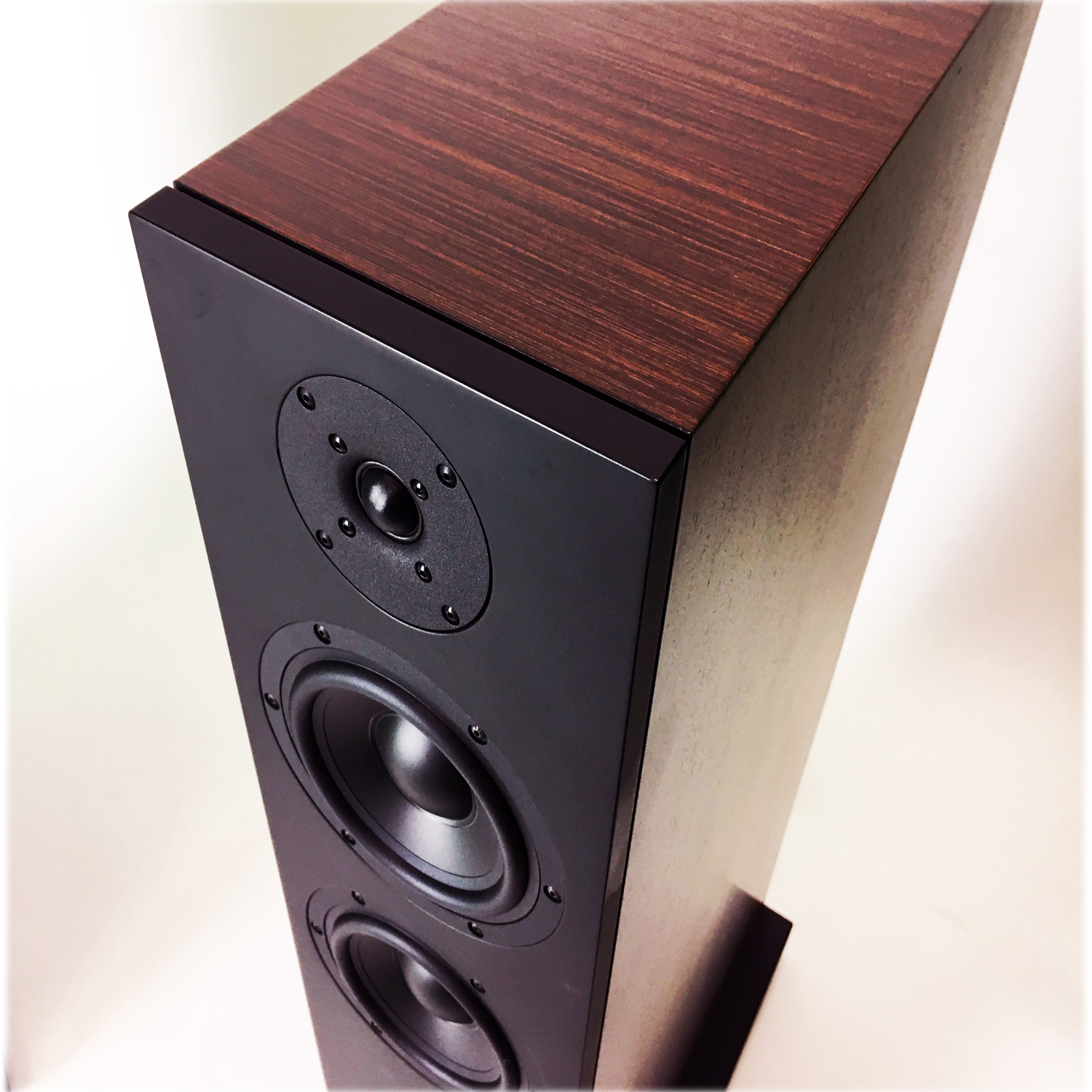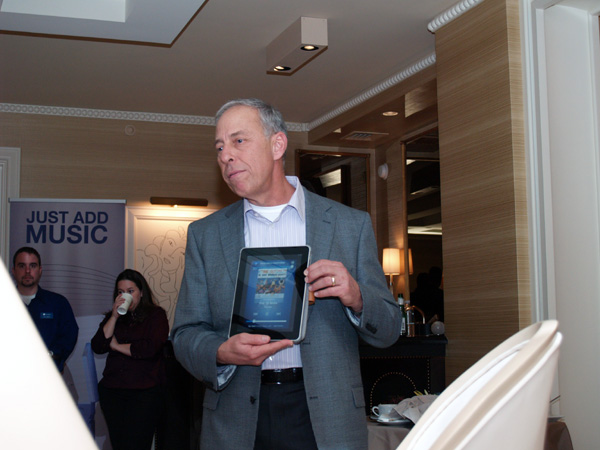I discovered the high end in 1978. But I seemed to have a natural inclination towards high-quality experience. My father was a largely self-trained EE, who was hired at RCA Camden as his first job in the US in 1951. He built our hi-fi systems at home including what I recall as the first stereo system in the neighborhood. He had a shop in our basement where he built analog computers in the 60s for his employer in Philadelphia. Everyone in our family except me was an expert at soldering—I only knew how to draw and paint, and by the beginning of the 70s, that had evolved (or, if you were as disappointed as some of my family members were, devolved) into me being a musician. Next to my dad's tool-benches, the basement filled with walls of amps and drums – our house was the hang for incipient rockers.
My first real encounter with the possible came at 16 when I wandered into Alembic, a small custom instrument and sound-system shop in San Francisco, in '73. Alembic was an outgrowth of the search for purity and control on the part of Owsley and the Grateful Dead. I spent a day with company head Rick Turner, who helped me discover what was possible with bass sound and showed me what he had been doing for my heroes Jack Casady and Phil Lesh. I had gone in seeking knowledge and was amazed at how much there was to find. Rick would be guru #1.
3 years later I began my recording career at a small studio in San Diego. My first experience of playback after our initial take was jarring—where was the magic? We sounded like... ourselves. So disappointing. I expected tape to perform miracles and make us sound like a record, not like a direct feed off the mics. The engineer who brought us into this studio was Doug Sclar, and the 24-track tape recorder was a Stephens. Doug would be guru #2. He was, at the time, helping build Seal and Crofts' Dawnbreaker studio in LA (which used a Helios console). It never occurred to me to say what I was thinking about the fidelity of the sound at the time—it was simply something I noted: tape is basically inaudible. In following years I'd find that was anything but true; that the exception was the Stephens machine. But this was my first blush and I found it really disorienting. A couple years later I lived briefly at Doug's house in Orange County, transiting from San Diego to LA. Doug knew his stuff: he had a Technics SP-10, an Infinity Black Widow arm and Micro-Acoustics cartridge, a Levinson ML-2, Threshold (heavily, personally modified) and Quatre Gain-cell amps driving Dahlquist DQ-10s which he had mirror–imaged and changed the caps on. This was news – that records could sound like this; that in fact records DID sound like this. Doug called it depth—I didn't know what to call it.
Up to this point I had noticed two things. My first system was a Garrard changer built into the top of a Realistic receiver and Sony tape recorder speakers. I noticed that if the speakers were set right, that Jorma's acoustic guitar on the first Hot Tuna album sounded surprisingly real, but only in one of the rooms of our house, and no other instrument did. And when I went to buy my first pair of real speakers, I ended up with AR-16s because the percussion on Weather Report's Birdland leapt out of the mass of speakers on the wall and hovered in the air.
But Doug's system was something else—like looking deep into space. I asked Doug how I could learn more, and he handed me a pile of magazines—The Audio Critic. I started reading them, was appalled by the snobbery of the content, and lost interest in the topic.
In 1981 I was working for a sound-effects guy, doing his books, some engineering and ghost-writing technical articles. He had some thoughts for modernizing the effects craft (which had been defined 5 decades earlier) and I spent some time interviewing a number of people around Hollywood, figuring out how the concept would work, and a few audio-engineering magazines published these pieces. Shortly after, he was hired for Tron—this is when I met Michael Fremer. I worked for a while directly with Michael, who was in charge of the post-production sound on the film, music and sound effects. Disney sent over a 2" multi-track, which is what the initial layer of effects were laid onto (like "harmonized" motor-cycle engine revs for the light-cycle sequence) which I had to wire up to interface with the studio's less-than-pro recording console. As the work accelerated, I left the company. The following spring I was playing my first show as the bassist in Terry Reid's band and heard someone down in front shouting my name. The next day my phone rang—it was Fremer. We hung out, I listened to his system, asked the same question of him I'd asked of Doug, and he sent me home with a few issues of the absolute sound. NOW I was interested. These people made sense to me—yeah, some snotty tone here and there, but mostly a group of curious and serious enthusiasts, trying to figure out what was going on and how to get closer to the source. Even without knowing them or anything about them, it felt collegial, not preachy. A couple of months after this, I was hired to score a film: I put together a studio in the director's house (formerly Preston Sturges' house), around yet again a Stephens tape deck. Suddenly, I found myself with more money in the bank than a guy living an early-80s avant-gardist/punk-rocker life could use in a year. So... of course—spend it! Michael and I went out and found me the beginnings of a good system, and off I went, ensnared in the search. But, not alone. I had the whole world of the absolute sound with me.
Not long after Michael went east to become pop music editor at TAS, I called him up to berate him for what I felt was a very poorly written survey on the records of someone I cared about (not by him personally, but he was editor). His riposte was to taunt me into doing better, and so I was handed my first assignment, which led to Sallie Reynolds inviting me to participate more regularly. Later that year I was visiting back east and spent a day in Sea Cliff with Sallie at the office and HP in "Music Room 3". Anyone who has been there never forgets their first time. HP is good at the socks-blown-off thing.
Writing for TAS was, for me, writing TO Sallie and HP. It was easy to "speak" to them, to conduct my side of an imaginary dialogue with two people I came to like very much and with whom I had plenty to really talk about on many topics—on every topic. We struggled a while, with me pushing to be allowed to find and then write as I thought rather than in the style of the magazine, but we got there and the more we got there the less I disliked reading my own writing; the more truthful I felt. I can't give higher praise than to say they went along with this. There wasn't a set message being pushed, there was more a sense of, "We're all moving to a wide-open place together." In my opinion, that brought some journalistic responsibility along with it. We owed it to ourselves and to each other to remember that we were doing something for a community, not for our own self-gratification.
A lot has changed since those days—in the high end, in the magazines, and obviously, in the world. At this point, it's hard to even know if a journal that was so blatantly amateur has any place. When I say amateur, I mean it in the best sense—from the heart. TAS was published erratically, writers were never sure when a check would come or for how much it would be, and there were lots of complaints about that. I don't care to dispute the complaints. Certainly in the years after the re-organization, the trains ran on time. You could count on a check, you'd know how much it would be for, and readers could rely on a professional delivery schedule. None of this, ultimately, triggered my departure, but it went a long way towards creating a sense—and I acknowledge that I wouldn't expect anyone else to share this sentiment with me—that the "mom and pop" (i.e., HP and SR) quality of the journal that I so loved had given way to agendas that, while not necessarily bad in any way, were simply something I had no interest in. The world had really changed. The world HAS really changed.
What finally sent me out the door began on the letters page. The editors got into a pissing match with long-departed Fremer. The argument, including implied threats of fisticuffs, revolved around whether or not Michael had any business making reference to knowing what an actual analog master tape sounds like. I didn't read the original article, but Michael compared the sound of an LP on a certain turntable to the sound on a master tape (it's important to understand the cult-like deification that the phrase master tape has come to possess among audiophile writers). When Michael wrote in and explained that as the supervisor of post-production sound on Tron many years earlier, he had plenty of exposure to master tapes, his use of the term supervisor was mocked on the letters page. When I read all this, I didn't assume nasty intent, I assumed a little bit of ignorance on the part of the editors. I sent in a letter telling them that as an eyewitness to Michael's job on Tron I could fully attest to what he would or wouldn't know about what a tape would sound like, and "suggested" that they owed him a public apology. I awaited a response. None came. But I did hear through backchannels that emails shot around very quickly through the editorial personages demeaning me. And I realized it was time to go. It would be self-serving to say that I did this out of loyalty to Michael. I didn't; I did it out of loyalty to the memory of a community that I loved being a part of, and from which I learned so much. There are probably as many legitimate ways of interacting with the ideals and goals of the high end as there are people interested in the topic. But the quality of interaction that I value is no longer to be found via the established audio journals.
Things have become tidier, and tighter, and more professional and the cracks have been plastered over. Trains running on time works for many things. But not everything. The gear is better now, but I'm not so sure about the art or the community.

































